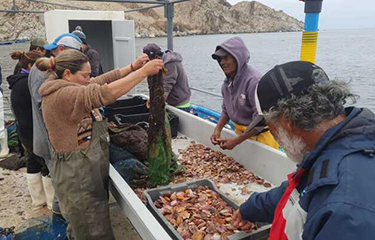Chilean salmonid exports reached USD 6.6 billion (EUR 6.2 billion) in 2022, a 27.4 percent year-over-year jump that cemented the industry's status as the country's second-largest export sector after mining.
However, the financial gains have been paired with greater environmental scrutiny of the industry's ecological side effects of salmon farming, resulting in Chile President Gabriel Boric opposing any expansion of salmon production.
In response, Chilean economic development agency Corfo has pushed for farming of other species, including Pacific oyster (Crassostrea gigas), golden kingklip (Genypterus blacodes), and floating kelp (Macrocystis pyrifera). It has issued a call to accelerate and consolidate the development, adaptation, and scaling of these prioritized species in the regions of Los Lagos and Coquimbo.
Corfo’s program aims to complement and expand Chile’s aquaculture production portfolio, with a clear focus on targeting regions outside of the capital city of Santiago while maintaining sustainability.
“We want new productive sources to be generated, and we’ve prioritized the species that have the most impact on local economies,” Corfo Technological Capabilities Manager Fernando Hentzschel told SalmonExpert.
One of the first projects approved through the program is a ...
Photo courtesy of the Universidad Católica del Norte








